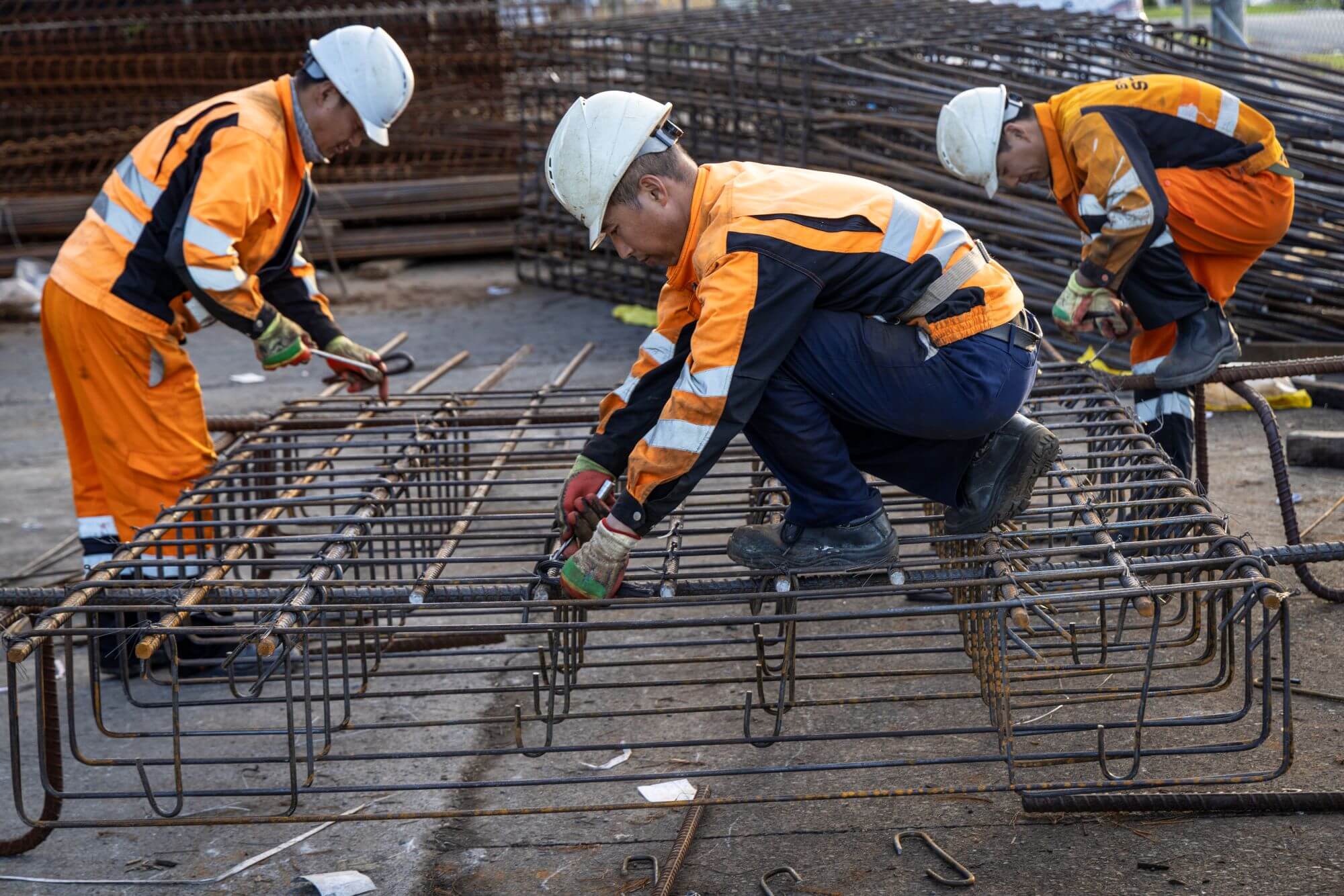Can prefabricated steel reinforcement save you money on your construction project?

In what is now a fast-paced world, our industries are striving to be as efficient and seamless as possible. As the digital world adapts to advances in AI, the construction sector is searching for ways to enhance building efficiency, while still delivering high quality products and services.
Anyone working in the construction industry knows the rising pressure to be more time and cost efficient, for both the company and the client. Everyone is looking for new construction methods that may reduce the time or money spent on a project.
So, can prefabricated steel reinforcement save you money on your construction project? The Brilliance Steel team answers this common question.
What is prefabricated steel reinforcement?
Prefabricated steel reinforcement is the process of manufacturing reinforcing steel products at a factory workshop, rather than building on-site. Once the product is complete, it can be transported to the project site and installed in the same day.
Contractors will visit the site with their experienced team of project managers and quantity surveyors to ascertain material quantities and measurements.
These details are then used to build the steel products, usually steel cages, at the factory workshop by experienced steel fixers and welders in a controlled environment.
Once the steel cages are designed and built at the factory workshop, the finished product can be delivered directly to site and installed in place exactly when needed.
Prefabrication helps to increase efficiency, save time on-site and make installation easier when in confined spaces or spaces that are difficult for steel fixers to reach.
Brilliance Steel provides a prefabrication service for pile cages. The cages are designed and built in our workshop by highly skilled steel fixers and welders, and we can provide options for a variety of different projects.
Will prefabricated steel reinforcement actually save money overall?
Depending on the project location and type, prefabrication may have a higher initial cost due to the manufacturing process or the transportation of completed prefabricated products.
However, savings made in other areas, like saving in labour costs and time and accounting for weather hold ups, generally make up for this and it is a more cost-effective option in the long run.
Some contractors believe that they can shortcut these costs by purchasing loose steel to build and insert themselves. However, a lot of time can be lost in the double-handling of loose steel reinforcing bars, like loading heavy steel onto trucks, transporting it to the building site, then unloading it all again. Piles of loose steel reinforcing bars can also take up a lot of space on-site, often causing delays and obstruction while other parts of the project are completed.
Manufacturing bespoke steel products at the factory workshop can save a lot of time and is therefore more cost-efficient, reducing trips and double-handling during delivery.
Once the product is complete, prefabricated steel cages can be delivered to the site and dropped into place in a tenth of the time it takes to manage loose cut and bent steel between the factory and project site*. Prefabrication also reduces time the potential for delays caused by weather or other hold-ups on the construction site. It is a more accurate and efficient building process.
In the long run, it is more time and cost efficient to have steel reinforcing products built at the factory workshop, in a skilled and controlled environment, and delivered to the project site exactly when it is needed.
This allows Brilliance Steel to maintain strict quality control and deliver top-quality products without delays or complications.
At Brilliance Steel we are upfront with our customers in how long these construction processes take. We outline each step of the process and ensure prefabrication is far more efficient than building on-site.

